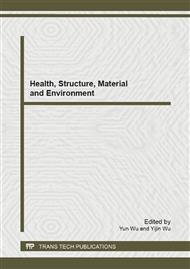p.257
p.261
p.265
p.270
p.277
p.282
p.286
p.291
p.297
Research on Composite Flocculant Improving Substrate Sludge Dehydration
Abstract:
The dewatering effects of FeCl3, AlCl3 and PAM as flocculants for substrate sludge in Poyang Lake of SCAU were tested. The indexes, such as the filtrating volume, the moisture content, etc, were compared in order to achieve the best composite flocculant. The results showed that, when FeCl3 was used with PAM in the ratio of 4:1, the highest filtrate volume 75mL was obtained. At the same time, when the dosing quantity is 3%, we obtained the best dewatering performances, such as the fastest velocity of filtrate, the highest degree of clarity with 88%, which were better than other flocculants.
Info:
Periodical:
Pages:
277-281
DOI:
Citation:
Online since:
February 2013
Authors:
Keywords:
Price:
Сopyright:
© 2013 Trans Tech Publications Ltd. All Rights Reserved
Share:
Citation:


